When Kirsty Hill was growing up in South Ayrshire, Dolly Parton was a faraway, comforting figure.
The country star’s music was a popular choice in her granny’s house, and she has fond memories of singing along to hits like Coat of Many Colours and Two Doors Down, “before my emo phase, obviously”.
Now that Kirsty’s grown up to become the regional director of the Dollywood Foundation UK, Dolly has become the larger-than-life central figure of her professional world.
But she remains a comforting figure in Kirsty’s own family home; only this time she’s bringing books through the letterbox instead of melodies through the radio.
Kirsty’s baby daughter Eilidh is just one of the 8,500 Scottish children signed up to Dolly Parton’s Imagination Library; a scheme started by the 9-5 singer back in 1995, in her hometown of Tennessee.
Remembering how important books were to her family growing up – and how scarce they were for poorer children like her – Dolly wanted to make sure every child in her town had access to free monthly books from birth until age five.
Over the next 28 years, the scheme grew to cover the entire US, and began branching out into Canada, Australia, the Republic of Ireland and the UK, with over two million children signed up worldwide.
But in this digital age of countless cheap e-books and audiobooks, some parents might wonder: Why bother with physical books at all?
“Having books in the family home has a huge impact on developmental mental wellbeing, as well as academic achievement,” explains Kirsty, who took up her post in 2020.
“There’s research from the Literacy Trust which says children who have over 60 books in the home are five and a half times more likely to be reading above their chronological age than children who have fewer than 10.
“And in our programme, if a child is signed up from birth, they will receive those 60 books by the time they go to school.”
How does the Imagination Library work?
So the Imagination Library is all about “getting books into the hands of children” according to Kirsty – but how does it work?
“We deliver the books. Dolly funds all the infrastructure costs. It’s that simple,” she explains. “So procurement, distribution, all of that is covered by Dolly Parton.
“Our community partners fundraise and pay only for the books given out in their area. We buy them in bulk, so they’re at a really reduced rate – about £2.16 per book, per child.”
When it comes to letting eligible families know there’s an Imagination Library partner in their area, health visitors and early years officers are key, Kirsty explains.
“We try to slot it in to when professionals are meeting families anyway,” she says. “So those first couple of days, meeting the health visitor, is when we’ll probably get the mot sign ups.”
‘Real focus on diversity’
From there, an age-and-stage appropriate book from Penguin Random House is sent out each month to every child up to age five in a community.
The books range from well-loved classics like The Tales of Peter Rabbit and The Very Hungry Caterpillar, to brand new authors.
“Spot The Dog was my absolute favourite as a kid, and now my wee girl’s got Spot The Dog, and it’s just amazing,” Kirsty gushes.
“Once you start talking about it, it just takes you back to your childhood. It’s really important that we get access to those titles that parents might recognise and resonate with.”
“But also, we make sure there’s a real focus on diversity and opening new worlds for children. So there’s things like diverse family types, lead characters who are from an ethnic minority background, and loads of representation throughout the titles.
“We’re not here to teach ethics or morals, it’s not about that,” Kirsty adds matter-of-factly.
“It’s just about getting kids to fall in love with a story and giving them that in their hands.”
Books won’t single out ‘poor kids’
Unlike means-tested schemes, the Imagination Library is delivered to all children in a community partnership area, regardless of their household’s income.
Kirsty points out that this means all the children who are the same age in one area will have the same book, so the kids can bond over the stories “like a little baby book club”.
“It’s really actually close to Dolly’s heart, that the programme isn’t income-dependent,” Kirsty reveals.
“Something Dolly always says is that she didn’t know she was poor until someone told her. She is really keen that nothing as magical as a book would be associated with the negative feeling of knowing you were different.”
The books are individually addressed to the children themselves; each one is sent ‘with love from Dolly’.
And the effect, Kirsty insists, is “literally life-changing”.
“You know what you’re like yourself, when you get a wee present through the post, it’s dead exciting!” she laughs.
“My wee girl Eilidh is just coming up to two, and she already recognises that that’s her book coming through the post, and gets so excited to read it.
“So I’ve seen it from every angle – I’ve been the community partner, the regional director, and now a parent.
“And from all angles, it’s just magic.”
Book-shy mum ‘read her first ever novel’
When it comes to the benefits of the Imagination Library, the numbers speak for themselves.
Research by PhD candidate Caroline Zwierzchowska-Dod found parents in receipt of Imagination Library books were 30% more likely to read daily with their child than a parent in the same socioeconomic circumstances outside of the programme.
The ‘nudge effect’ created by receiving monthly books encourages both children and parents to read more often; and having the dilemma of choice taken away helps parents feel less overwhelmed about what they should be reading to their child.
And that increased reading time leads to better language acquisition, speech development, listening and attention skills for children, helping them to prepare for school.
Moreover, a 5,000-parent survey carried out in 2022 revealed that the single biggest benefit reported by parents was the extra time bonding, snuggling and getting to know their child.
But for Kirsty, those aren’t just numbers; they are real stories that have unfolded before her eyes.
“In one of our programmes in Lanarkshire, there was a mum who had never gone to a library,” she recalls.
“She had never read a book before, and didn’t really know where to start. And the feedback we got from her was that she saw how much her daughter loved receiving these books and she thought, ‘I need to do something about this’.
“So she joined a library, took some books out, and actually finished her first ever novel. It’s genuinely amazing.”
Dolly’s sights set on Fife
Now in 2023, Ms Parton is determined to bring the benefits of the Imagination Library to more families in Scotland – and especially those in Fife.
“At the tail end of last year, there was a real decision and shift in the direction of travel, of Dolly saying ‘we really want to invest in Scotland’,” explains Kirsty.
“She was really keen to celebrate Dunfermline in particular because of the connection to Andrew Carnegie.”
Indeed, after receiving the Carnegie Medal of Philanthropy last year, named for Dunfermline’s most famous son and philanthropist Andrew Carnegie, the country star wrote to Visit Dunfermline director Billy George, inviting local communities to join her Imagination Library.
Now Kirsty, as the Dollywood Foundation UK’s “one-woman band” for the whole of Scotland, is determined to make it happen.
But to do that, she needs community partners.
Currently there are 120 partners across Scotland, but most of these are local authorities, as the Scottish Government funds an Imagination Library partnership across the nation for care-experienced children.
“The Scottish Government has funded that since 2011 and we’re so grateful,” says Kirsty. “We’ve mailed over a quarter of a million books to care-experienced children in Scotland.
“Our next direction of travel is finding those community partners who want to help us do it for the rest,” she adds.
“Fife is one of our focus areas over the next wee while, because firstly, there’s a demand, but also there’s a need, in Fife, to do something like this.”
One keen organisation already on board is the Coalfields Regeneration Trust, which is already investing in the Imagination Library for the ex-coal mining towns and villages across Fife.
“We wanted to explore all possible opportunities to give children in Scotland’s former coalfield areas the best start in life and thought the Imagination Library and Dolly Parton’s ethos of inspiring the love of reading this project fitted well with our priorities,” explains CRT head of operations Pauline Grandison.
“In Benarty, Fife, we are working with the Community Shop, who have already put funds toward the project to help with sustainability.”
She reveals that since its launch in summer 2020, over 100 children have registered for the Imagination Library in the Benarty area.
And Lorna Gallagher, manager of the Benarty Community Shop, has deemed the Imagination Library “one of the most worthwhile projects we have been involved with”.
She added: “To give children from birth to five years old a new book every month is to open their minds and give them years of enjoyment.”
Scotland could have ‘first nationwide Imagination Library’ says Dolly
But although the focus is on Fife, Dolly herself made it clear that she’s keeping her dreams big for the Imagination Library, and reaffirmed her “special connection” to Scotland as a whole.
“Some of you may know I have a very special connection to Scotland, through my ancestry and through my Imagination Library,” she told The Courier.
“Together with our local partners across the country, we’ve sent over 450,000 books to children in Scotland so far.
“I’d love for more villages, towns, and cities to become part of our community and help your children dream big.
“In fact,” she added, “how amazing would it be to offer the Imagination Library to all children in Scotland? We could have the first nationwide Imagination Library anywhere!
“Together, we can put wings on those dreams!”
To find out more about the Dollywood Foundation in Scotland or become a community partner, contact Kirsty via the Imagination Library website.
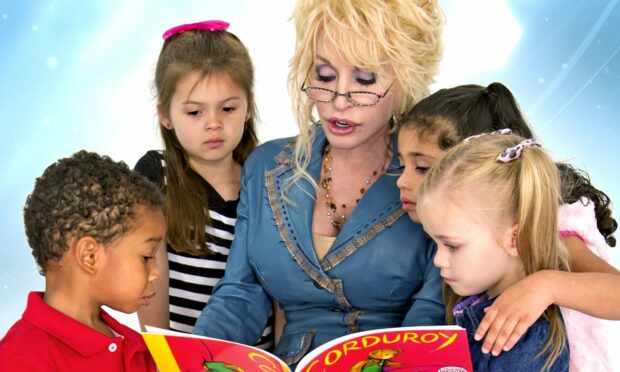
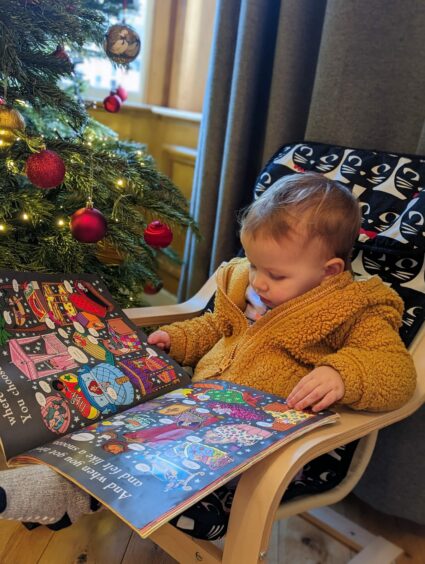
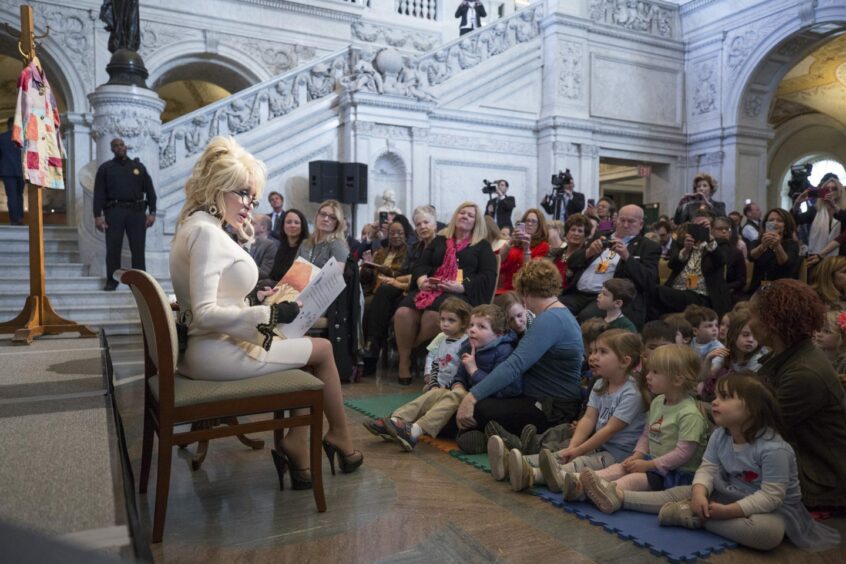
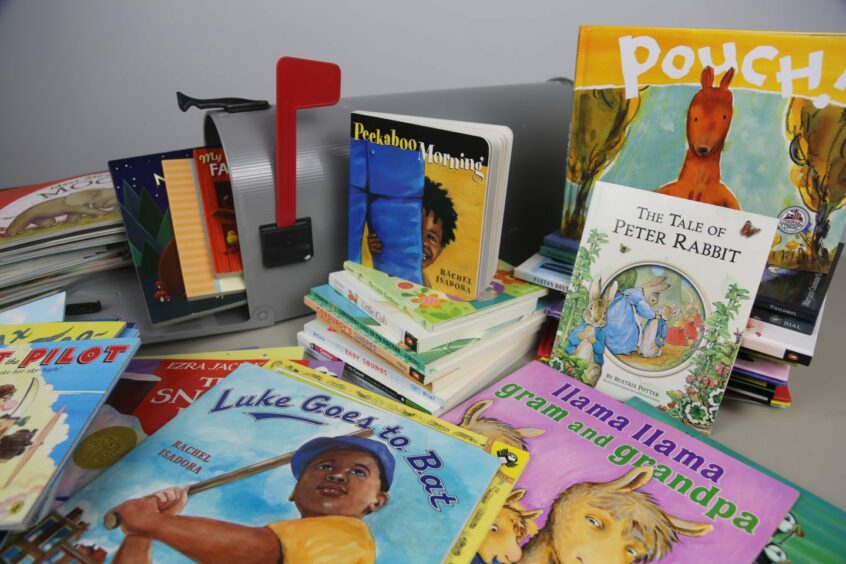
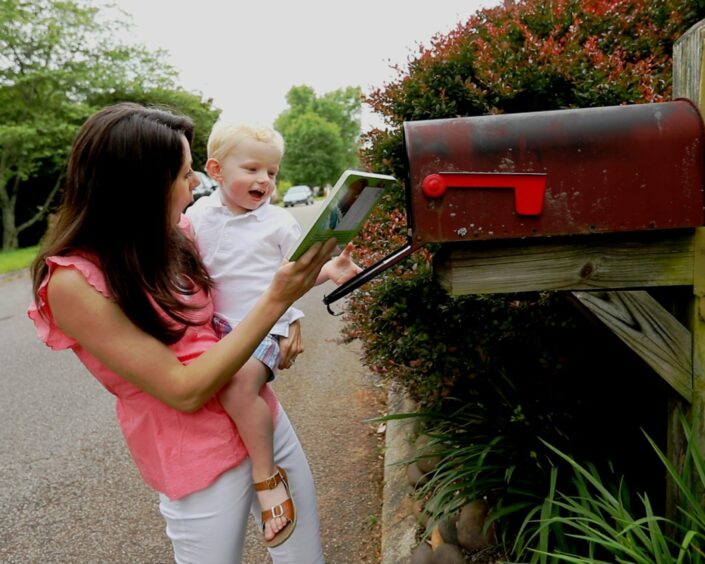
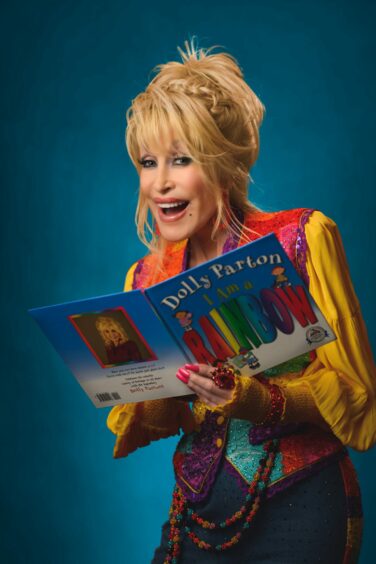

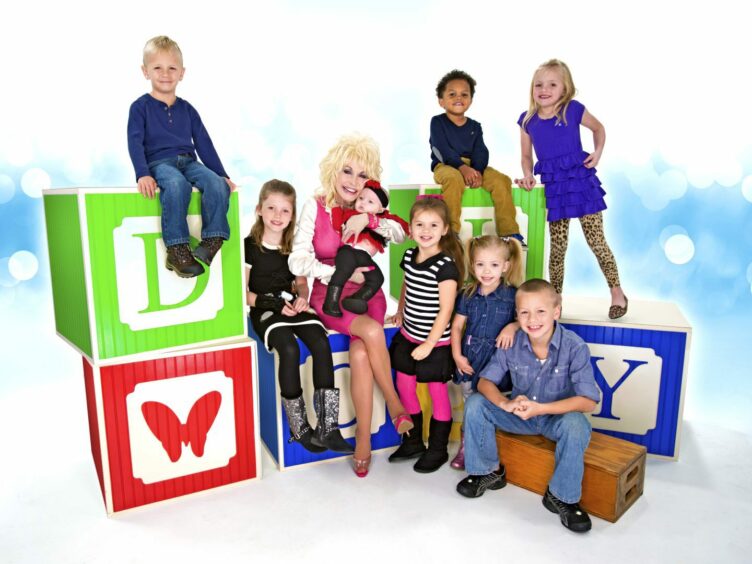

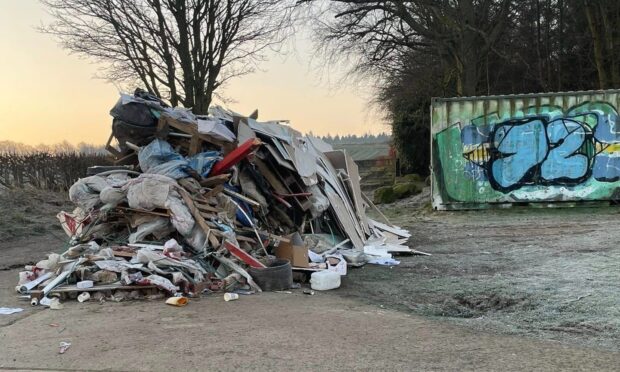
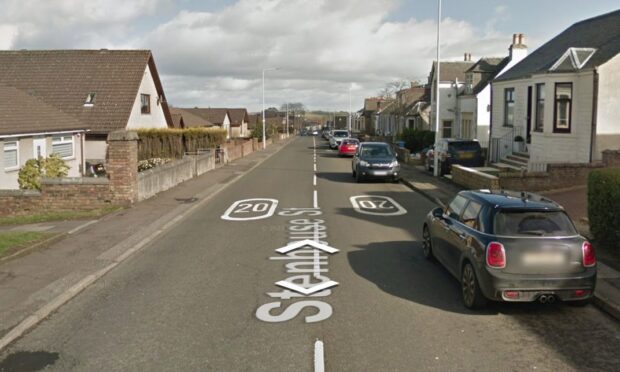


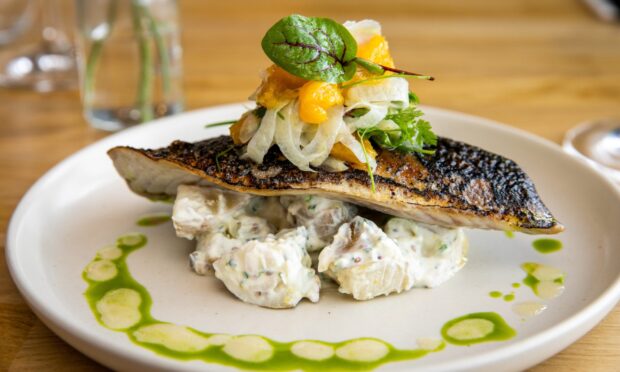

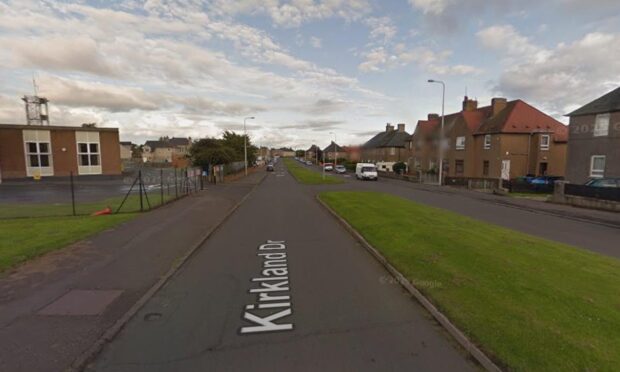

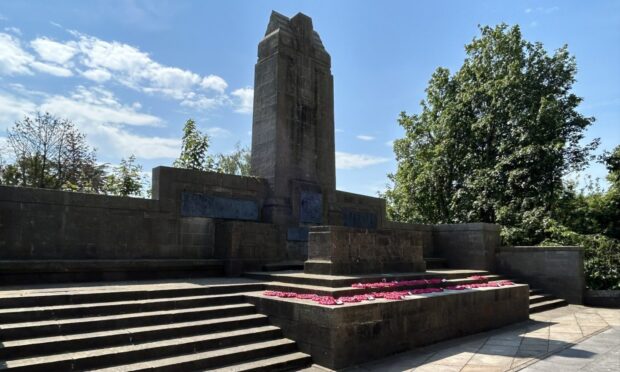
Conversation